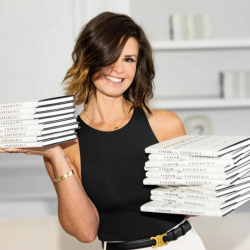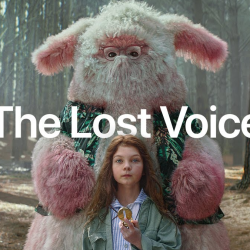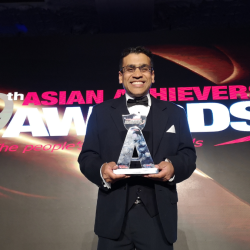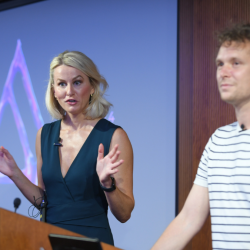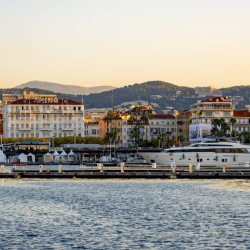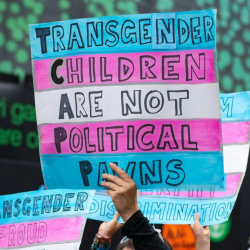I decided to step away from International Women’s Day last year. Don’t get me wrong, the fight is far from over. Women of colour, disabled women, working class women, trans women, and sex workers are owed a louder microphone. The international element of International Women’s Day Society could be ramped up. And 81,000 women were murdered globally in 2020, with almost 60% at the hands of a partner or family member. So, you know, “must try harder” would be an understatement.
But let’s face it, the day doesn’t need my voice, does it? It doesn’t need brands’ voices either, really. I’d rather push for equity 365 days of the year. Having one day is crap. It’s patronising. “Let’s announce it on International Women’s Day!” is a phrase we’ve all heard in brainstorms; like launching a product or an initiative on that very day somehow gives it meaning.
In the same way saying “I love you” over and over lessens the impact and meaning of the phrase, the grandiose, tokenistic pink bullshit of IWD has simply become another facet of the feminism ‘industry’. An industry that sells socks and aprons with the word feminist on them (or SMASH THE PATRIARCHY); an industry that convinces women they have imposter syndrome to sell life coaching; an industry that… makes money from membership.
What price for membership of a social group?
Belonging is one of Maslow’s needs: we demand it – crave it – it gives us tingles. Whether it’s the draw of a gloriously geeky subculture or uber-exclusive bar, or just having a close bond with your relatives, it all counts. From a gender perspective, it’s common sense that women — in a continued position of lesser equality and human rights — should “stick together”, and work together to right society’s wrongs, or at the very least not intentionally fuck each other over. And not just on one day, but on all the days.
However, according to research, membership is essential for women to get ahead in their careers. A study entitled ‘A network’s gender composition and communication pattern predict women’s leadership success’ conducted in 2019 which studied over 4.5 million emails and job placements, found that the likelihood of women who belong to women’s networks getting leadership positions is 2.5 times higher than those who don’t belong. For men in men’s networks, it’s only 1.5 times greater. In fact, 77% of the highest-achieving women in the study had strong ties with professional cliques.
I accept these results without question. They make perfect sense to me. Women need networks for loads of reasons, like sharing war stories (so we realise that our own terrible experiences aren’t isolated incidents), meeting more senior women to help us up the ladder, and to spot opportunities for each other. Occasionally, it’s to have a group of women that men will consent to formally engaging with…
But cliques come with issues, too.
What happens when the networks aren’t inclusive? What happens when women’s networks, instead of battling social inequality, serve to reinforce it? What happens when the same opportunities get passed around a select few, who have paid a substantial amount to be there, or have been handpicked by women like them, to become a member of an exclusive club? Is this just as unfair as a broader unjust society that prioritises white men over everybody else? Are we then just smashing the glass ceiling to get the same power as white men, rather than fighting for a level playing field?
An easy observation to make if you look at the websites of many long-running women’s groups in advertising is that they’re quite… white. And blonde, lol. Speaking from personal experience, as a woman from a verrrry working class background (oh, here she goes again!) I’ve often felt out of place in such networks. Like Eliza Doolittle, desperate for relevance, attempting small talk about foie gras and Net a Porter. I’m definitely not alone in feeling like an outsider, sometimes. Even in women’s groups. And I know that sometimes, if it feels too hard, too strained, too exclusive… it’s easier to give up, and go it alone.
But I, like many women, have also benefited from brilliant and enduring professional female friendships that made my career — and life — better. A shared unspoken understanding that we know how this shit feels, in a way that men never will.
So what conclusions might we draw, as IWD comes around again, and the 24-hours worth of fireworks begin?
My suggestion: we need an ‘outsider’ strategy. We need to understand why the women who feel like outsiders feel like outsiders. Is it class, personality, background, or all of the above? Or is it because they weren’t invited?
Perhaps in an industry so desperate to see equality, women shouldn’t need to be a member of a clique to succeed. They shouldn’t feel alienated or lesser, just because membership of a certain group didn’t feel right. If we’re being fair, it shouldn’t be who you know, it should be how fucking good you are, and we should all be putting the platforms in place to allow everyone a fair crack at speaking.
Networks will always exist. Support from those with the same lived experiences makes a difference. I love the work that Bloom does, for example, not only in being a loud champion for equality, but for facilitating difficult conversations about conflict and bullying in our industry.
But we also need to make more efforts to welcome and understand those who’ve lived differently, and listen to the voices that don’t shout. A question we should be asking is not, how can I make things better for women inside my clique, but how can I improve the chances for women outside it, too? Even the women who disagree with me. Even the women who challenge me. Even the women who feel like they don’t belong.
Featured image: Markus Spiske / Unsplash























